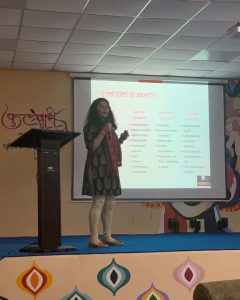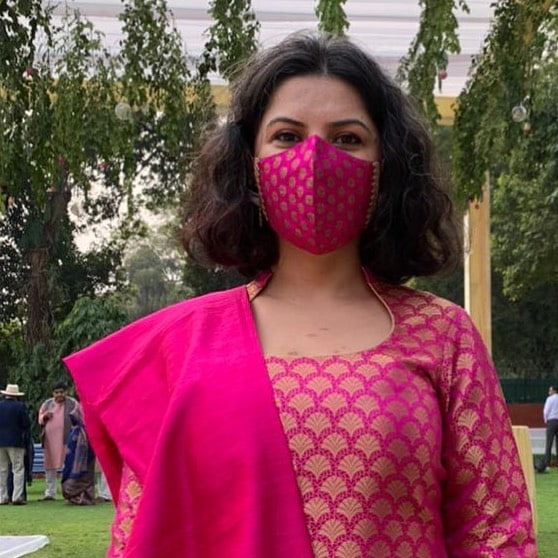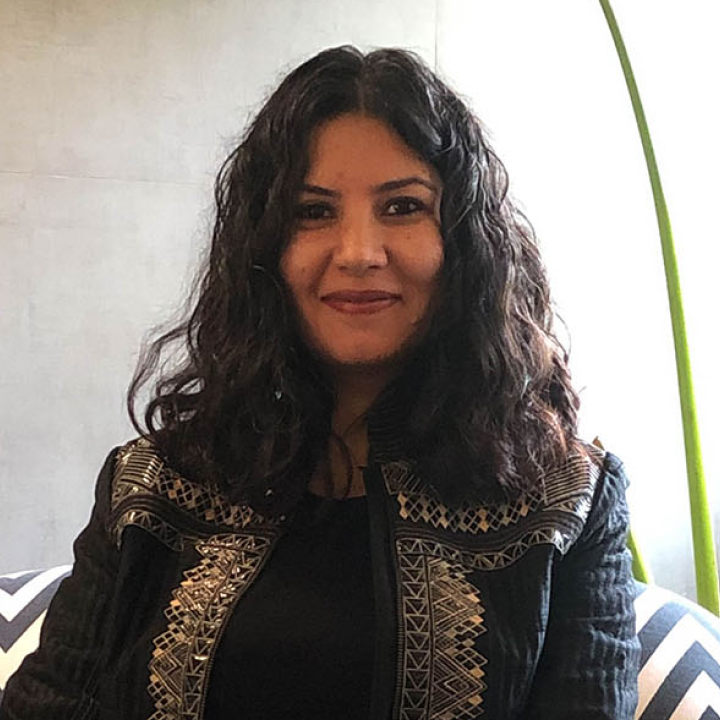CATEGORIES
Leadership and Networking | People We Admire | Women Empowerment“I was surrounded by strong women growing up, and my mother and grandmother have been a source of inspiration for me.”

My grandmother was one of the first women in her locality who had a master’s degree. My mother is a historian and a writer. She started doing what she loves when she was 55 years old. They taught me how to pursue my passion and desires even when society expected women to conform to traditional gender roles. And despite the predisposition to imposter syndrome they faced, they still went on to do great things.
One of the important things that helped shape my life was moving around a lot and living in different cities. It helped me integrate, learn, and assimilate. When you’re away from your family at a young age, and you’re living with people at your developmental stage, it makes a huge difference in your personality.
My mantra has always been “live and let live.” Vices creep up on us unconsciously, so I try constantly to accommodate others’ beliefs.

As a young adult, I always believed everyone thought along the same lines, but when I started working for an NGO, I realized everyone has different notions and ideas. The mind reinforces our beliefs, so if we believe women are inferior, the mind finds examples that confirm it, which is why we need to curb these beliefs early. As you grow, you stop challenging things and start accepting them as they are. We should teach young people to understand and accept each other. It is one of the first steps to stopping violence because the more we understand each other, the less we will hurt each other.
Mental health has always been a big passion of mine. Lots of women end up experiencing mental health issues due to societal stereotypes. Young women today are expected to balance work and home life perfectly, which is not true of men. As such, couples compete with each other rather than work together.
In India, traditional leadership roles still tend to be occupied by a small percentage of men. Men have their own ideas of women’s capabilities. More often than not, we are the ones who end up with imposter syndrome. We just think that we’re not worthy. But increasingly this has changed, with increased interaction between all genders and promotion of women in leadership. I think the more women leaders there are, the easier it’s going to become for other women to rise as they’ll have role models to look up to.

I had some traumatic life experiences but after I healed, I can say that I’m happier, I’m loved, and I have regained my core values. One such experience was my abusive relationship and the reason I struggled to come to terms with it was that I could not accept the fact that I was in such a position. I have always been a strong woman; I still am, so I couldn’t process that I was being abused. I was constantly living in fear and very emotionally battered until I snapped out of it. This experience taught me that I wasn’t weak; my strength was only used against me in that relationship.
As someone who talks about sensitive topics, my advice to people who have gone through situations like mine is to please speak about it. You don’t know who you might inspire, encourage, or even help to break free of their abuser by sharing your story. I really believe that our experiences are not as personal as we think they are because your life is not yours, it belongs to everybody. We should encourage everyone to share and talk about their experiences, good or bad, rather than keeping it in and breeding negative feelings. The little parts of you that you share with the world become the true definition of immortality.


